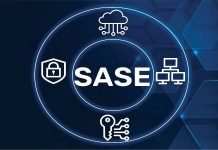As artificial intelligence and automation continue to reshape industries, one surprising truth has emerged: the more digital the world becomes, the more it needs human-centered thinking. Emotional intelligence, behavioral insight, and mental wellness are becoming critical pillars of business success, especially in fast-moving, tech-driven environments.
This growing demand is creating new opportunities in the workforce for those trained to understand how people think, feel, and behave. Psychology, once considered mostly academic or clinical, is now embedded in everything from app design to workplace culture strategy.
The Tech-Driven Demand for Human Insight
When tasks become automated, the human element becomes a differentiator. Companies are realizing that innovation doesn’t stop with algorithms, it thrives in environments where people feel understood, motivated, and supported. That’s where psychology steps in.
Roles like UX researchers, behavioral data analysts, and digital wellness consultants blend technical environments with human needs. Tech companies, startups, and even AI-focused firms are hiring professionals who can translate behavioral patterns into product design decisions, workplace policies, or user experience flows.
Psychology’s Evolving Place in the Digital Workforce
Psychology is no longer confined to counseling rooms or academia. It’s a key asset in emerging roles that require understanding user behavior, fostering employee satisfaction, and promoting mental health in scalable, tech-integrated ways. Digital therapy platforms, workplace well-being initiatives, and virtual education models all rely on psychology to function effectively; even marketing and customer service now demand psychological insight to create more meaningful, ethical, and data-informed interactions.
The Rise of Online Education for Human-Centered Fields
As these opportunities grow, so does the need for accessible, flexible education options. The rise of online learning has made it easier than ever for professionals to gain credentials in psychology-related fields without stepping away from their current roles or relocating for school.
Many professionals are turning to graduate psychology programs to prepare for these emerging roles in behavioral science, tech, and wellness, especially those that offer the flexibility of online study. These programs support both recent grads and career changers in acquiring specialized knowledge without putting their careers on hold.
Career Paths That Blend Psychology and Innovation
The intersection of technology and psychology has created an exciting mix of career opportunities, many of which offer remote or hybrid work models:
- UX Researcher – Apply behavioral science to optimize digital products.
- Organizational Psychologist – Shape workplace culture and performance.
- Digital Therapist – Offer mental health support through virtual platforms.
- Learning Experience Designer – Design training programs with cognitive principles.
- Behavioral Coach – Guide tech startup teams in leadership, focus, and growth.
- Wellness Program Director – Build corporate wellness initiatives with long-term impact.
These roles require a strong grasp of both people and systems, making psychology a valuable foundation.
Why Human Skills Are the Long Game
Automation might replace repetitive tasks, but it can’t replicate empathy, creativity, or ethical judgment; these are the traits that will define future leaders, innovators, and problem-solvers.
The professionals who invest in emotional intelligence and behavioral insight today will be the ones shaping user-centered products, healthy teams, and more responsive systems tomorrow.
Conclusion
The future of work isn’t just digital, it’s deeply human. As we move forward in an AI-powered world, the ability to understand and support people will become one of the most valuable assets in any career.
For those looking to future-proof their careers while making a meaningful impact, exploring the intersection of psychology and technology is a smart, forward-thinking move, and accessible online education is helping make it possible.






